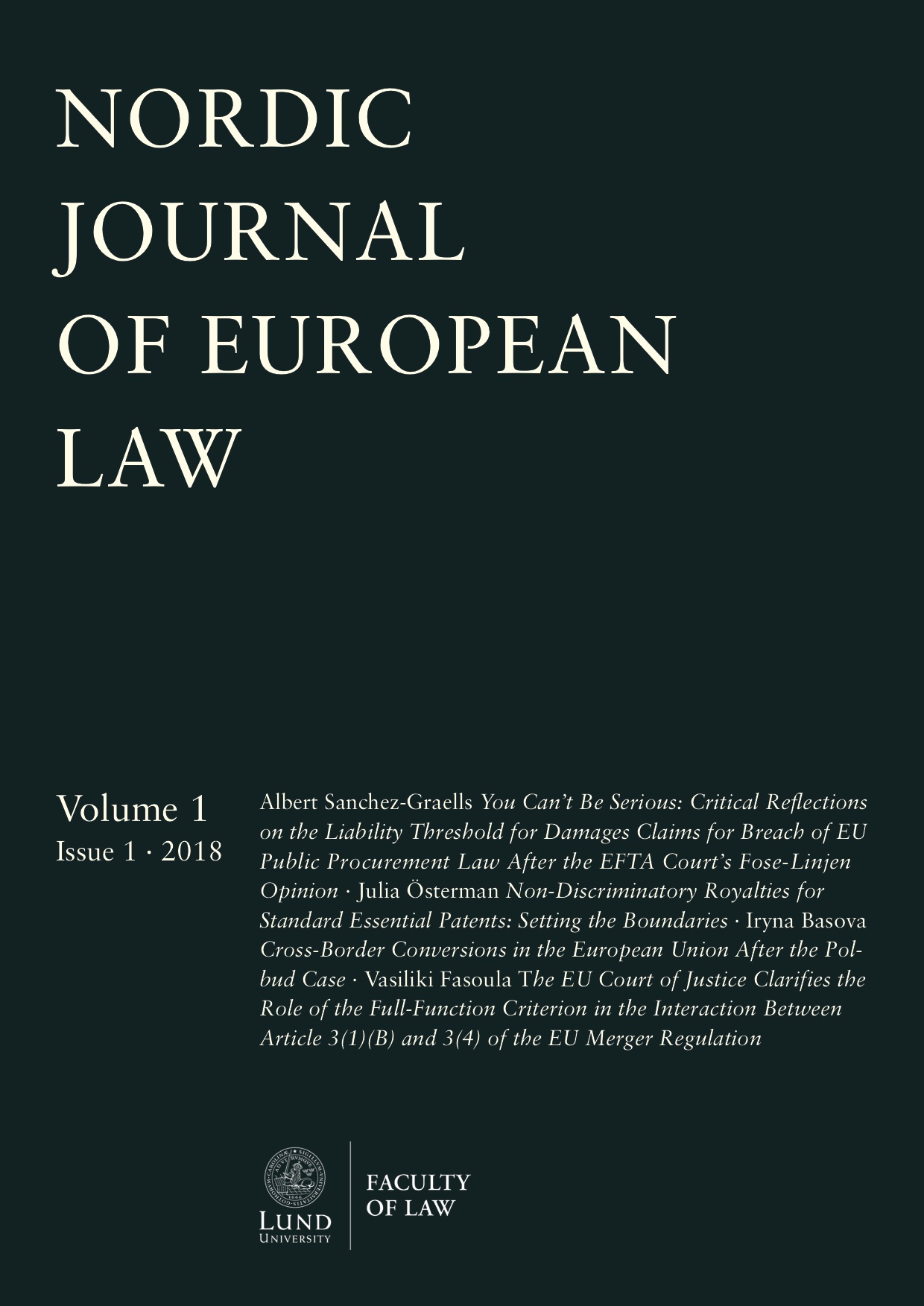The EU Court of Justice Clarifies the Role of the Full-Function Criterion in the Interaction Between Article 3(1)(b) and 3(4) of the EU Merger Regulation
Main Article Content
Abstract
Case note: C-248/16 Austria Asphalt GmbH & Co OG v Bundeskartellanwalt, Judgment of the Court of Justice of the European Union of the 7th of September 2017. Joint venture is a common business strategy that provides companies with benefits in scale economies, R&D, operational efficiencies and synergies. Joint ventures can be potentially harmful for the state of free competition in a market if they coordinate with their parent companies or if their operation can restrict access to the market for other competitors. Within the Internal Market, joint ventures fall under the scrutiny of two pieces of competition legislation in a non-cumulative way: the EU antitrust provisions and the EU Merger Regulation (EUMR) under Article 3(1)(b) and 3(4). Before the Austria Asphalt preliminary ruling, the Commission, despite its ambiguous decisional practice, considered those two paragraphs to constitute two different jurisdictional criteria applying to two different types of notifiable transactions. In Austria Asphalt the CJEU examined the correlation of those two paragraphs. It interpreted Article 3(4) as a restriction of Article 3(1)(b) by considering that the full-function criterion set by Article 3(4) should apply to all concentrative joint ventures: those newly created by a transaction as well as to those resulting from a change in the control of an existing company. In practice, the CJEU’s view limits the one-stop shop principle of the EUMR in favour of national competition authorities.
Article Details

This work is licensed under a Creative Commons Attribution-NonCommercial-NoDerivatives 4.0 International License.

